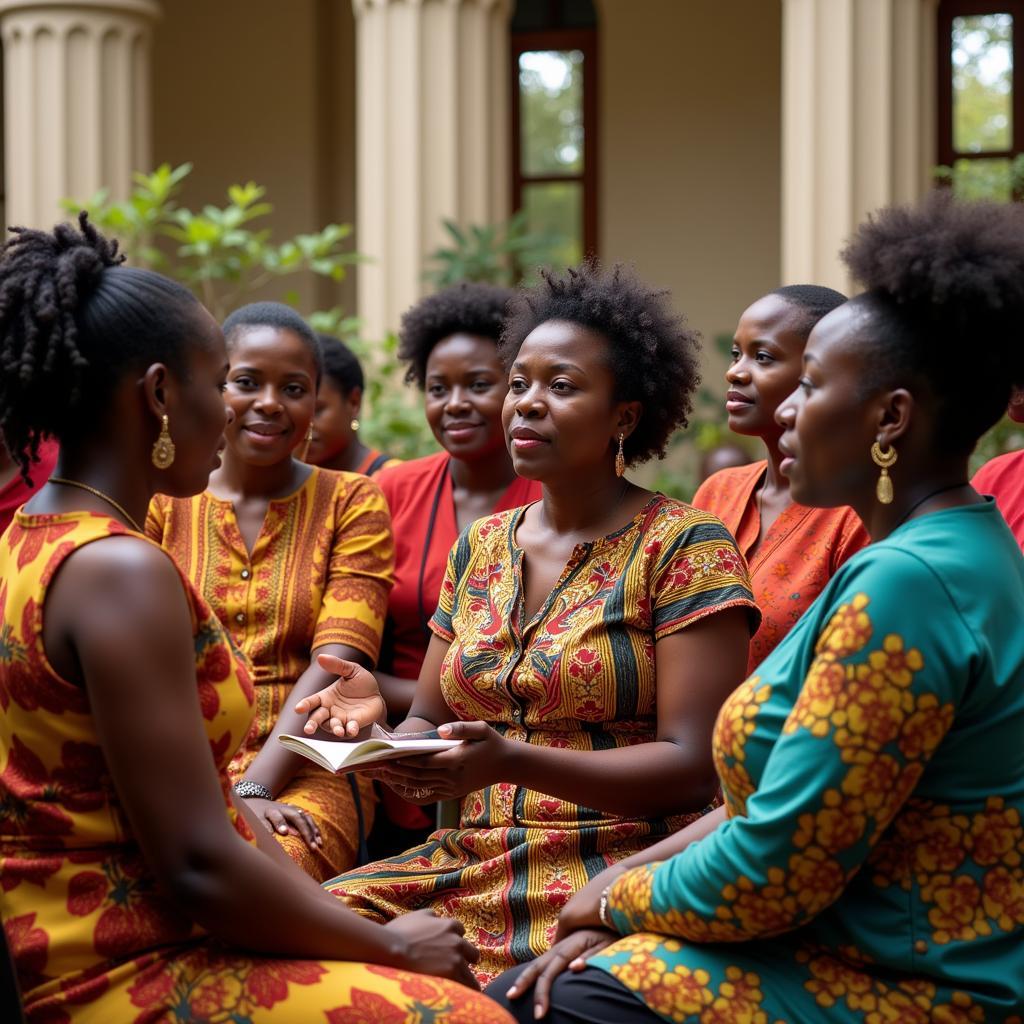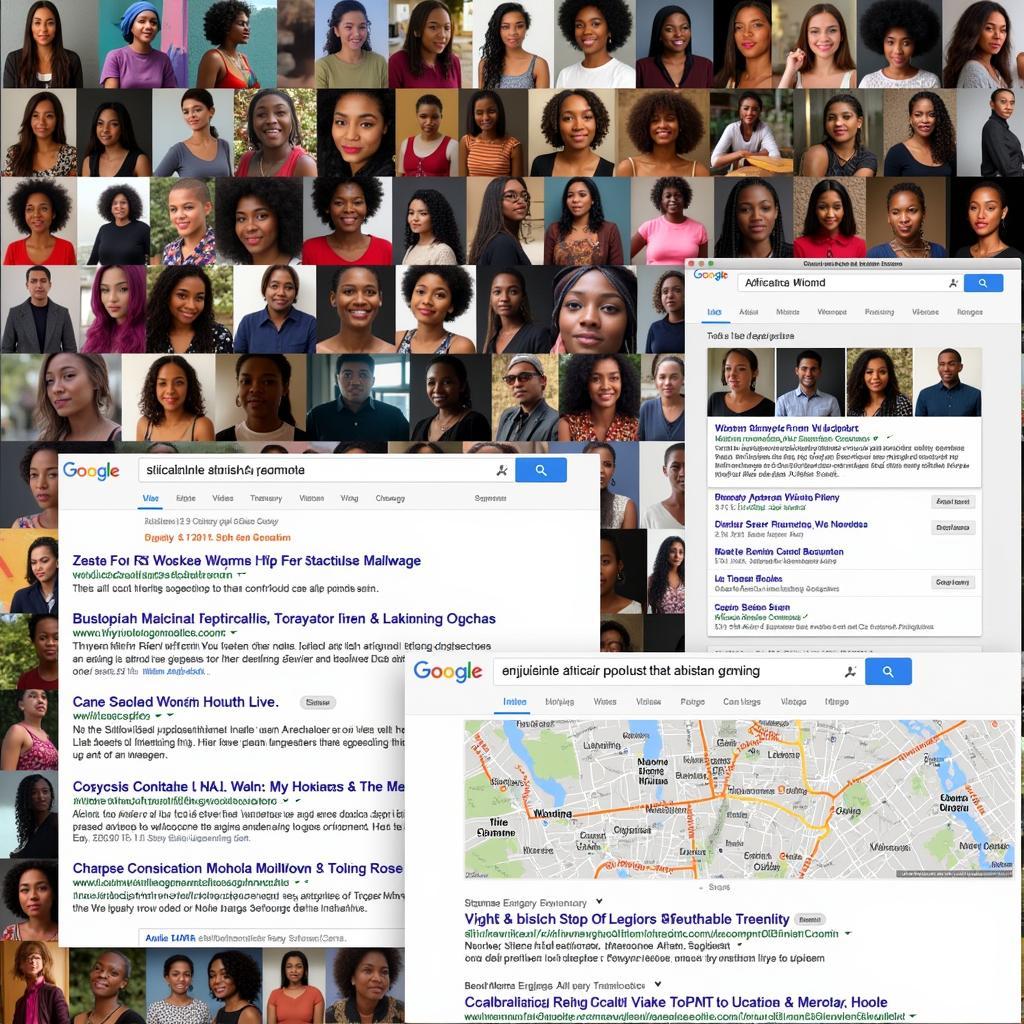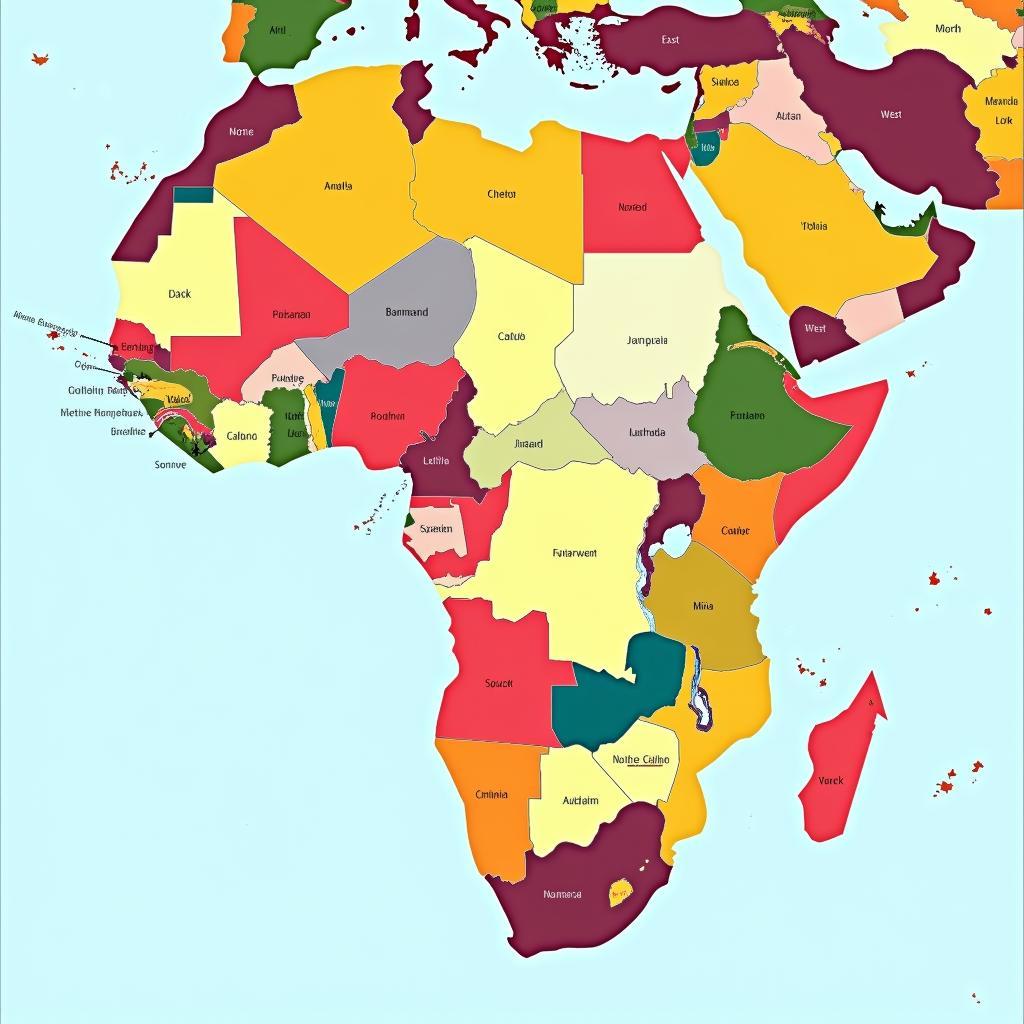About African Payal: Unveiling the Rhythmic Symphony of Ankle Adornments
African payal, often referred to as ankle bracelets or anklets, are far more than simple adornments. They are rhythmic storytellers, cultural symbols, and expressions of identity woven into the rich tapestry of African Life. These intricate pieces, crafted from a diverse array of materials, resonate with the heartbeat of a continent, echoing tales of tradition, heritage, and artistic brilliance. From the silver bells of the Tuareg to the beaded beauty of the Maasai, African payal offer a captivating glimpse into the diverse cultures and artistic traditions of the continent.
The Cultural Significance of African Payal
African payal hold deep cultural significance, varying in meaning and purpose across different regions and ethnic groups. In some cultures, they represent social status, marital status, or even spiritual beliefs. The delicate jingle of these ankle adornments can signify a woman’s presence, her grace, and her connection to her ancestors. They are often passed down through generations, becoming treasured heirlooms imbued with familial history and sentimental value. In other communities, payal are worn during ceremonial dances, their rhythmic chime adding another layer of depth to the performance, connecting the dancer to the earth and the spirits. The materials used, whether precious metals, beads, or shells, often hold symbolic meaning related to prosperity, fertility, or protection.
Exploring the Diverse Designs and Materials
The sheer diversity of African payal is truly breathtaking. From the intricate silverwork of North Africa to the vibrant beaded designs of the south, each piece reflects the unique artistic sensibilities of its creators. Materials range from precious metals like gold and silver to more readily available resources like shells, beads, leather, and even recycled materials.
The Tuareg people of the Sahara Desert are known for their exquisite silver payal, often adorned with intricate geometric patterns and small bells that create a delicate chime with each step. The Maasai, on the other hand, favor colorful beaded payal, often incorporating symbolic patterns and colors that represent different aspects of their culture. The Himba people of Namibia use leather and iron for their payal, creating a more robust and grounded aesthetic.
African Payal in Modern Fashion
African payal are not confined to traditional contexts; they are increasingly finding their way into contemporary fashion, both within Africa and globally. Designers are incorporating these unique pieces into their collections, showcasing the beauty and cultural richness of African artistry on a global stage. This resurgence of interest in African payal has empowered local artisans, providing economic opportunities and helping to preserve traditional craft techniques.
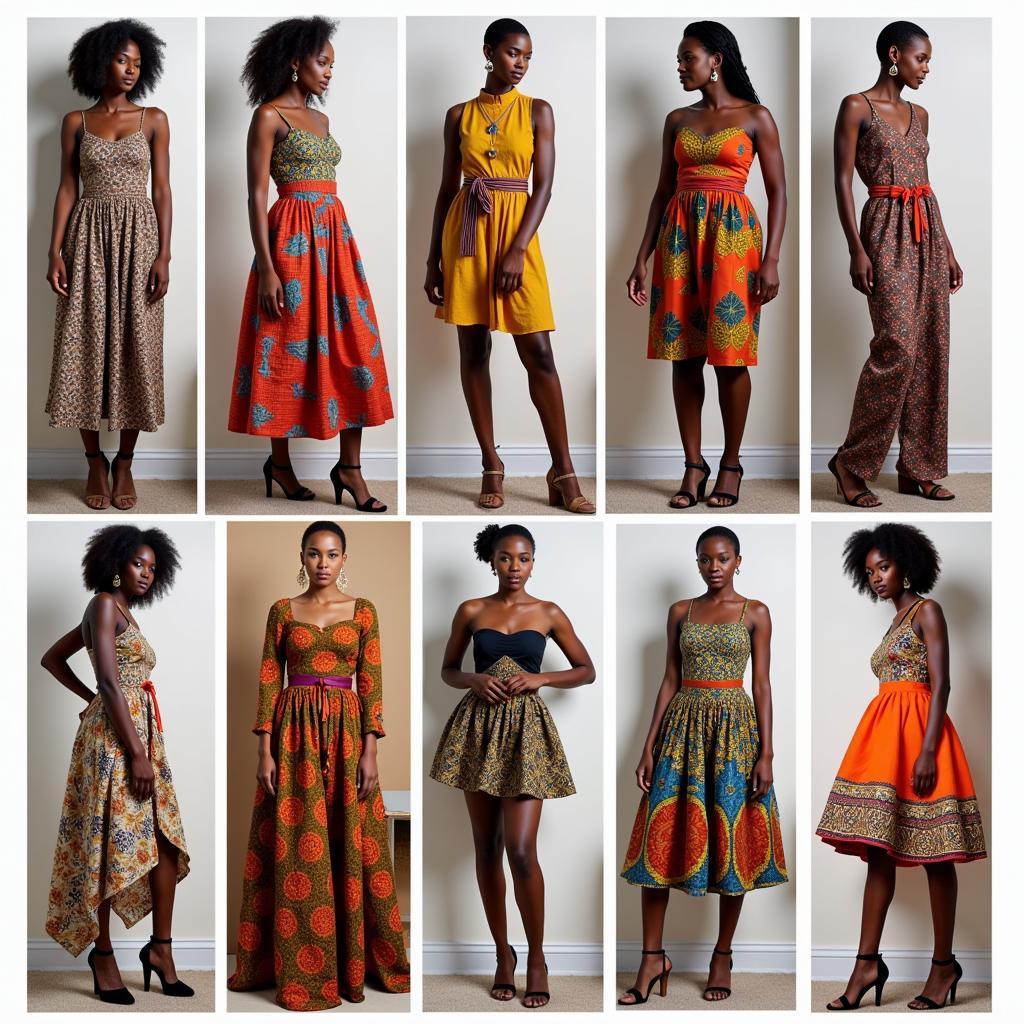 African Payal in Modern Fashion Trends
African Payal in Modern Fashion Trends
How to Choose and Wear African Payal
Choosing the right African payal is a personal journey of discovery. Consider the materials, the design, and the cultural significance that resonates with you. Whether you prefer the elegant simplicity of a silver chain or the vibrant energy of beaded anklets, there is a perfect pair waiting to be discovered.
What are the different types of African payal?
African payal come in a wide range of styles, from simple chains to elaborate beaded designs.
How do I care for my African payal?
Proper care depends on the materials used. Silver payal can be polished, while beaded payal should be handled gently.
Where can I buy authentic African payal?
Authentic African payal can be purchased from reputable retailers specializing in fair trade and ethical sourcing.
The Enduring Legacy of African Payal
African payal are more than just beautiful accessories; they are tangible expressions of cultural heritage, artistic innovation, and the enduring spirit of a continent. They are a testament to the power of adornment to tell stories, connect generations, and celebrate the rich tapestry of human experience. From the rhythmic chime of silver bells to the vibrant hues of beaded masterpieces, African payal continue to resonate with the heartbeat of a continent, echoing tales of tradition, resilience, and artistic brilliance.
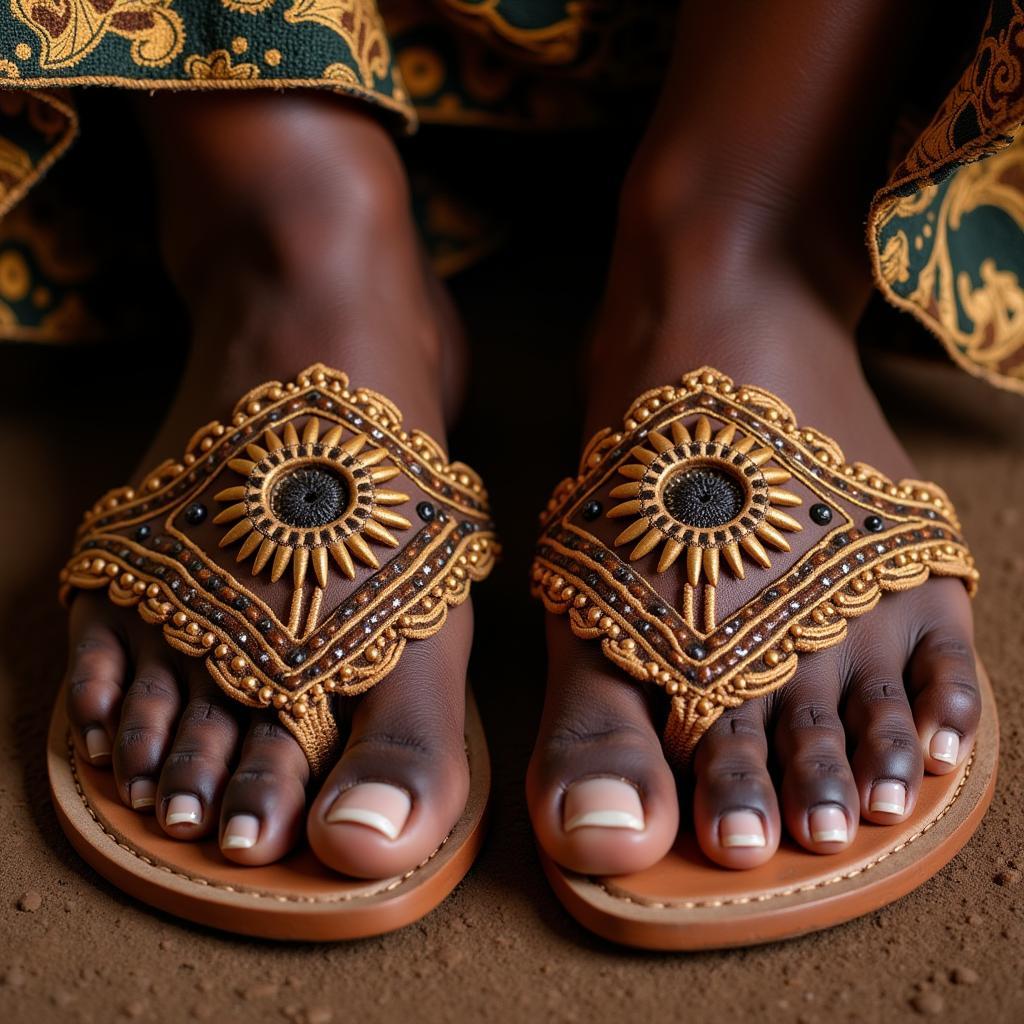 African Payal: Cultural Heritage and Legacy
African Payal: Cultural Heritage and Legacy
Dr. Anika Khumalo, a renowned anthropologist specializing in African art and culture, notes, “African payal offer a powerful lens through which to understand the diverse cultural landscapes of the continent. Each piece tells a story, whispering secrets of tradition and identity.” Similarly, Adebayo Ogunlesi, a celebrated Nigerian jewelry designer, observes, “The resurgence of interest in African payal is not just a fashion trend; it’s a celebration of our heritage and a testament to the enduring power of African artistry.”
Frequently Asked Questions About African Payal
- What is the meaning of African payal? The meaning varies depending on the culture, but often symbolizes status, identity, or spiritual beliefs.
- What materials are African payal made of? Common materials include silver, gold, beads, shells, leather, and recycled materials.
- How do I choose the right African payal? Consider your personal style, the cultural significance, and the materials used.
- Where can I buy authentic African payal? Look for reputable retailers specializing in fair trade and ethical sourcing.
- How do I care for my African payal? Care instructions vary depending on the materials; silver can be polished, while beaded payal should be handled gently.
- Are African payal only for women? While traditionally worn by women, men in some cultures also wear payal.
- Can I wear African payal with modern clothing? Absolutely! African payal can be styled with a variety of outfits, adding a unique cultural touch.
Looking for more information about African jewelry and cultural traditions? Explore our articles on traditional African necklaces, earrings, and headwear.
Need help choosing the perfect African payal? Contact us at +255768904061, email kaka.mag@gmail.com, or visit us at Mbarali DC Mawindi, Kangaga, Tanzania. Our customer service team is available 24/7.

